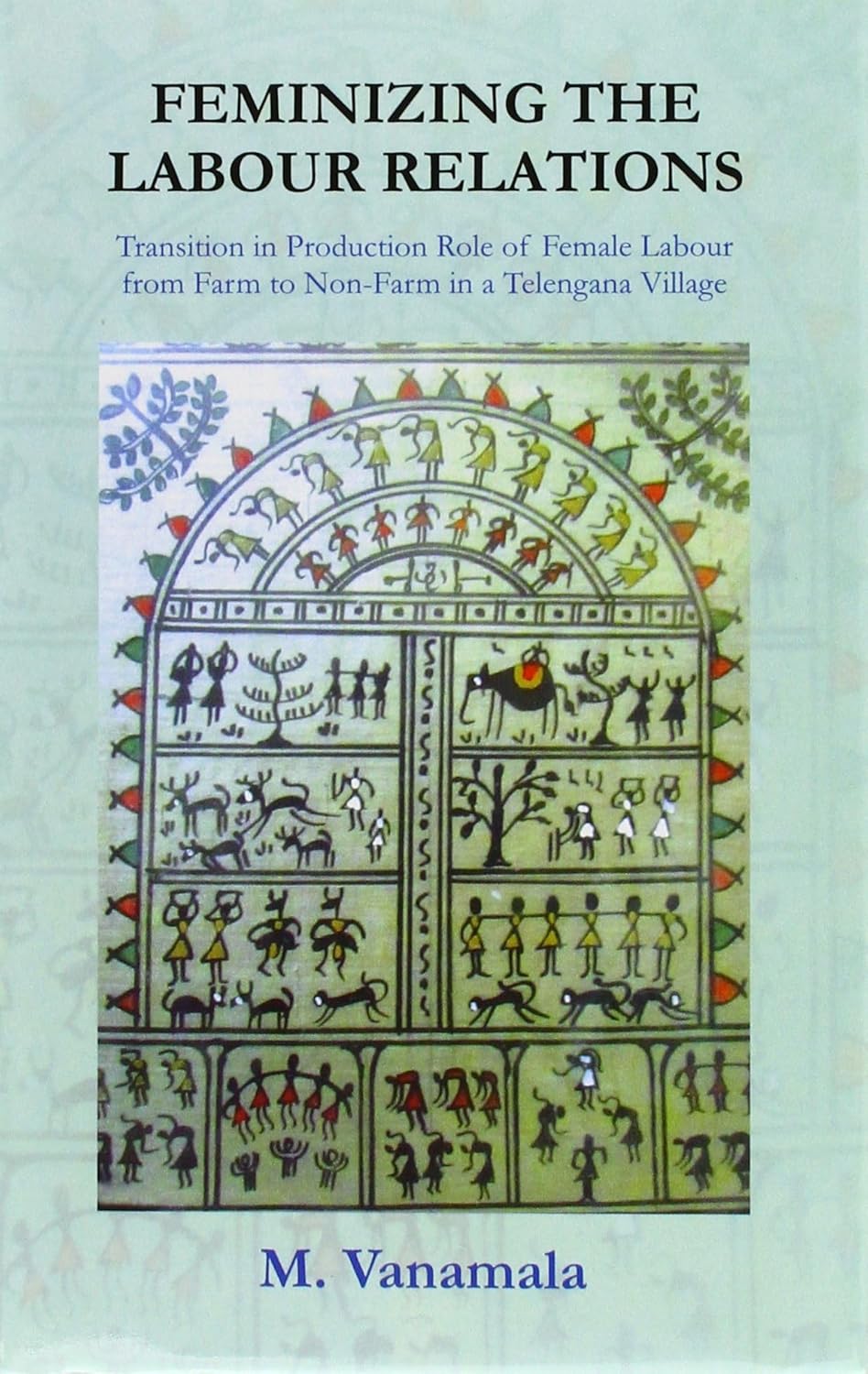Feminizing the Labour Relations: Transition in Production Role of Female Labour From Farm to Non-Farm in a Telangana Village
Feminizing the Labour Relations: Transition in Production Role of Female Labour From Farm to Non-Farm in a Telangana Village
Couldn't load pickup availability
This book focuses on gender precariousness in the wake up of socio economic and institutional transition of the life and livelihoods of female labour from different communities, classes and castes. The study seeks to answer the basic question as to what happens to women's work and status if a village in which they are mostly employed in agriculture, undergoes a transition to industrial and other new non-farm activities. This study tracks changes in agriculture beginning with land use, changes in the share of area cultivated, cropping pattern, the choice of agricultural technology in terms of gender specific labour use and relatively low female wages. The second issue relates to the basic changes in the village due to the macro policy shifts and institutional changes at the national level. The imposition of the neo liberal regime in which private profit seeking activities across all sectors including health and education, witnessing an ”increase” in “commodification” of farm land and influential role of speculators and minimized state’s role. These changes have far reaching implications for opportunity structure for rural women. It is in this broad narrative of changes the book analyses changes in working status of women based on the field data collected between the first and last survey in thirty years span, the land under cultivation shrunk drastically from1973acres in 1979t to 926acres in 1995-96 to just 349acres in 2009-10. The paddy cultivation in this village supported by irrigation sources was the main crop and highly female labour intensive. There was hardly any alternative mechanism that could absorb female labour in other than cultivatingactivities. From 1980s with the entry of industrial activity and acquisition of a part of farm land, steep rise in land prices led to increasing diversion of farm land for non-farm purposes. These changes caused decline in female employment and also deskilled them. In addition to loss of agricultural work women also lost traditional non-farm activities like, wool cleaning spinning. The displaced female labour not willing to take up minial jobs offered by industries catapulted productive work to domestic work.. In this scenario, state initiated SGSY (SHG), the field survey found that the loan facility to SHG led to increase in consumption expenditure instead of providing economic security. The SHG scheme was followed by MFI (which charged interest up to 75per cent) hit adversely the vulnerable female headed families. The study was also extended to a modern manufacturing industry to track the working and living conditions of women which revealed much of de skilling even in modern industry. The entire development pattern does not hold any promise for creating conditions where female labour could gain dignity, security, not to talk of equality.`
Share

